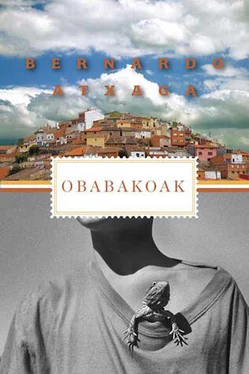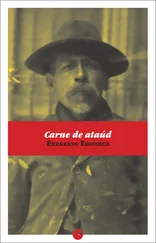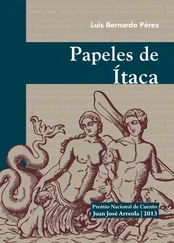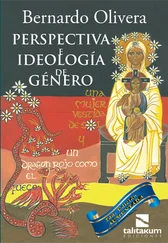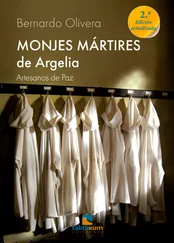Bernardo Atxaga - Obabakoak
Здесь есть возможность читать онлайн «Bernardo Atxaga - Obabakoak» весь текст электронной книги совершенно бесплатно (целиком полную версию без сокращений). В некоторых случаях можно слушать аудио, скачать через торрент в формате fb2 и присутствует краткое содержание. Год выпуска: 2010, Издательство: Graywolf Press, Жанр: Современная проза, на английском языке. Описание произведения, (предисловие) а так же отзывы посетителей доступны на портале библиотеки ЛибКат.
- Название:Obabakoak
- Автор:
- Издательство:Graywolf Press
- Жанр:
- Год:2010
- ISBN:нет данных
- Рейтинг книги:3 / 5. Голосов: 1
-
Избранное:Добавить в избранное
- Отзывы:
-
Ваша оценка:
- 60
- 1
- 2
- 3
- 4
- 5
Obabakoak: краткое содержание, описание и аннотация
Предлагаем к чтению аннотацию, описание, краткое содержание или предисловие (зависит от того, что написал сам автор книги «Obabakoak»). Если вы не нашли необходимую информацию о книге — напишите в комментариях, мы постараемся отыскать её.
Obabakoak
The Observer
Obabakoak — читать онлайн бесплатно полную книгу (весь текст) целиком
Ниже представлен текст книги, разбитый по страницам. Система сохранения места последней прочитанной страницы, позволяет с удобством читать онлайн бесплатно книгу «Obabakoak», без необходимости каждый раз заново искать на чём Вы остановились. Поставьте закладку, и сможете в любой момент перейти на страницу, на которой закончили чтение.
Интервал:
Закладка:
“Then let’s sing together.”
“We’re afraid because we’re so young. Not because we’re cowards.”
“How old are you?”
“Seventeen I think.”
“So am I.”
We embraced in that empty room and then found much consolation in the songs of our beloved land of Lorraine.
There are those who are friends for only a moment, friends with whom we share our food, and friends who appear at our side only in times of prosperity and joy. But the friendship between Pierre de Broc and I, Jean Baptiste Hargous, was different, for from that first moment on we became brothers and companions on the road and companions too in misfortune and in weariness, we always comforted and consoled each other and hoped never to be parted.
Forty days after we left Nancy, when the winter was at its height and the fields were deep in snow, we reached a village called Aumont. A Jew fleeing Orleans spoke to one of the captains and told him that the Norman army was less than fifteen leagues away and that, despite the bad weather, a man on horseback could easily reach them in an afternoon. Count Lothaire ordered us to set up camp and sent a scout on ahead to spy on the Normans. The count wanted to know how many men were in their army, how many horses they had, and how confident they were of their strength. The scout galloped off, his horse’s hooves kicking up a cloud of white snow, and Pierre and I sat down in the tent to play the rebec and to sing.
But one day passed, then two, then three and the scout did not return and when a week had gone by we all gave him up for dead. And it was then that the head cook spoke out, saying that he refused to believe what he heard. He said that the scout had not died but deserted and he accused the scout chosen by Count Lothaire from among his best men of being a traitor and a coward and that was when a captain, a friend of the other man, slew the cook with his sword. The more experienced soldiers protested at so severe a punishment and time soon proved them right for from that day on the food grew steadily worse.
The second scout sent by Count Lothaire returned two days later. I didn’t see him with my own eyes, nor did Pierre, but those who did said he rode into camp bearing all the marks of sickness and of death. He was pale, his eyes glazed, and flies buzzed about his head, in itself remarkable in such a severe winter. And that second scout was of no use to Count Lothaire either for he talked only nonsense, like a man in the grip of fever. Then the Count called us all together and asked for three volunteers, saying he would bestow many privileges and favors on anyone managing to find out anything about the Norman army.
A captain, the one who had killed the head cook, and two other soldiers declared themselves willing and left at once. But our spirits did not lift because of that and the first desertions took place that day as soon as the scouts had left. Some said it was twenty men and others that there were many more and that at least a hundred horses had gone missing from the stables.
The captain and his two soldiers took their time returning and some ten days passed before we saw them riding back along the edge of the wood and we were all surprised to see how they laughed and joked and larked about among themselves as if they were children.
“They’ve gone mad, Jean Baptiste,” Pierre whispered in my ear.
“But what is it that the scouts see?” I asked.
“They see the Normans, Jean Baptiste.”
“So it’s true what the women in Aumont told us.”
The women in Aumont had told us that the Normans kept wild animals in cages and tamed them like dogs and that anyone seeing them would never again forget them for they were as big as cows but with the hooves of horses and the heads of wolves, and that if we ever went into battle we would be devoured by those monsters.
“God have mercy on us, Jean Baptiste,” sighed Pierre.
We were just on our way back to the tent to get Pierre’s rebec when a soldier, old and lame, who was always following us around and was angry with us because we never wanted his company, suddenly threw a bird at us just as one might throw a stone and the bird brushed both our chests, first Pierre’s then mine. The bird had yellow wings and was dead from the cold, its eyes tight shut, and the fact that it had touched us seemed to us an omen of great evil.
Count Lothaire shut himself up in his tent to think and all the soldiers prayed to Our Lord God to make him see that the only way open to us now was retreat and that it was time for the sons of Lorraine to return to their beloved land. But the Count was not even considering retreat, he was seeking a new scout. And that was how he came to choose Guillaume, a bastard child from the village of Aumont who was always hanging around the camp, for the Count thought that the Normans would never suspect a nine-year-old child. And Guillaume accepted the order with great joy, because he wanted to be a soldier and because the Count promised him a fistful of silver in exchange for the news that none of his other scouts had yet managed to bring him.
He left laughing and quite without fear, having enjoyed to the full the party some soldiers had insisted on holding in his honor. Pierre and I joined in the party too because we felt that our fate was somehow in his hands. And we prayed to Our Lord God to guide the steps of that child and bring him to the cages where the Normans kept the cows with the heads of wolves and the hooves of horses. Because one thing was certain, no soldier would want to go into battle against such monsters and then the Count would be forced to give in and allow the retreat.
Meanwhile the winter continued. Many soldiers fell ill. Others stole horses and deserted.
Guillaume returned after about a fortnight and did so wearing the same joyful expression he had worn when he left. And when he went over to our master Lothaire’s tent, every soldier in the camp followed behind him.
“This time we will get news of the Normans,” I said to Pierre. But when Guillaume climbed onto a cart and began to shout out tales of what he had seen in the enemy camp, we all looked at each other in amazement, for we understood nothing of what he said. He was not speaking in our language, nor even in Latin. And when our master Lothaire began asking him questions, the child looked as amazed as we did. He did not understand what he was asked.
“Do you know what language he’s speaking, Jean Baptiste?” Pierre asked sadly.
“No, I don’t.”
“He’s speaking in Norman. In a matter of only a fortnight, he’s forgotten his own language and learned theirs. They are much more powerful than we thought, Jean Baptiste. They must have an army of at least twenty thousand men.”
“But Pierre, children are very quick. They have a great capacity for learning new words.”
But we could not continue our conversation because out of the murmuring that followed Guillaume’s words there emerged first one shout, then another and another and very soon there were a thousand soldiers from Lorraine shouting and a thousand running toward the horses, pushing and shoving one another, for there were not enough horses to go around.
“Let us fly too, Pierre,” I said to my friend.
“The rebec, Jean Baptiste, I left it in the tent!” he exclaimed, running off.
“Pierre!” I shouted.
I wanted to tell him to forget about the rebec, to keep out of the way of that crazed mob. Then, right before my eyes, he slipped in the mud and fell beneath the hooves of a horse. Another three horses trampled over him and a few dozen soldiers followed.
“Pierre!” I shouted again. But he was already dead.
I started to cry, unable to move from where I stood, lacking even the will to stop the lame soldier, the one who had always trailed around after us, from coming up to me and throwing me down in the mud. For I, Jean Baptiste Hargous, wanted to die as my friend, Pierre de Broc, had died, with my skull smashed in by a horse.
Читать дальшеИнтервал:
Закладка:
Похожие книги на «Obabakoak»
Представляем Вашему вниманию похожие книги на «Obabakoak» списком для выбора. Мы отобрали схожую по названию и смыслу литературу в надежде предоставить читателям больше вариантов отыскать новые, интересные, ещё непрочитанные произведения.
Обсуждение, отзывы о книге «Obabakoak» и просто собственные мнения читателей. Оставьте ваши комментарии, напишите, что Вы думаете о произведении, его смысле или главных героях. Укажите что конкретно понравилось, а что нет, и почему Вы так считаете.
